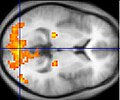Clinical neurochemistry
Clinical neurochemistry is a branch of neuroscience that explores the chemical processes and compounds that are involved in the nervous system. It is a vital field in understanding the function and dysfunction of the brain and nervous system.
Overview[edit]
Clinical neurochemistry involves the study of neurons and glial cells, the two main types of cells in the nervous system. Neurons are responsible for transmitting signals, while glial cells provide support and protection for neurons. The chemical processes that occur in these cells, including the production and use of neurotransmitters, are a key focus of clinical neurochemistry.
Neurotransmitters[edit]
Neurotransmitters are chemicals that transmit signals across a synapse from one neuron to another 'target' neuron, or to an effector cell. They play a crucial role in the transmission of signals in the nervous system. Some of the most well-known neurotransmitters include serotonin, dopamine, and acetylcholine.
Disorders[edit]
Disruptions in the chemical processes of the nervous system can lead to various neurological and psychiatric disorders. For example, an imbalance in neurotransmitters can lead to conditions such as depression, schizophrenia, and Parkinson's disease. Clinical neurochemistry, therefore, plays a crucial role in the diagnosis and treatment of these conditions.
Research and Future Directions[edit]
Research in clinical neurochemistry is ongoing, with scientists continually discovering new aspects of the nervous system's chemical processes. This research is crucial for the development of new treatments for neurological and psychiatric disorders.
See Also[edit]
Ad. Transform your life with W8MD's Budget GLP-1 injections from $75


W8MD offers a medical weight loss program to lose weight in Philadelphia. Our physician-supervised medical weight loss provides:
- Weight loss injections in NYC (generic and brand names):
- Zepbound / Mounjaro, Wegovy / Ozempic, Saxenda
- Most insurances accepted or discounted self-pay rates. We will obtain insurance prior authorizations if needed.
- Generic GLP1 weight loss injections from $75 for the starting dose.
- Also offer prescription weight loss medications including Phentermine, Qsymia, Diethylpropion, Contrave etc.
NYC weight loss doctor appointmentsNYC weight loss doctor appointments
Start your NYC weight loss journey today at our NYC medical weight loss and Philadelphia medical weight loss clinics.
- Call 718-946-5500 to lose weight in NYC or for medical weight loss in Philadelphia 215-676-2334.
- Tags:NYC medical weight loss, Philadelphia lose weight Zepbound NYC, Budget GLP1 weight loss injections, Wegovy Philadelphia, Wegovy NYC, Philadelphia medical weight loss, Brookly weight loss and Wegovy NYC
|
WikiMD's Wellness Encyclopedia |
| Let Food Be Thy Medicine Medicine Thy Food - Hippocrates |
Medical Disclaimer: WikiMD is not a substitute for professional medical advice. The information on WikiMD is provided as an information resource only, may be incorrect, outdated or misleading, and is not to be used or relied on for any diagnostic or treatment purposes. Please consult your health care provider before making any healthcare decisions or for guidance about a specific medical condition. WikiMD expressly disclaims responsibility, and shall have no liability, for any damages, loss, injury, or liability whatsoever suffered as a result of your reliance on the information contained in this site. By visiting this site you agree to the foregoing terms and conditions, which may from time to time be changed or supplemented by WikiMD. If you do not agree to the foregoing terms and conditions, you should not enter or use this site. See full disclaimer.
Credits:Most images are courtesy of Wikimedia commons, and templates, categories Wikipedia, licensed under CC BY SA or similar.
Translate this page: - East Asian
中文,
日本,
한국어,
South Asian
हिन्दी,
தமிழ்,
తెలుగు,
Urdu,
ಕನ್ನಡ,
Southeast Asian
Indonesian,
Vietnamese,
Thai,
မြန်မာဘာသာ,
বাংলা
European
español,
Deutsch,
français,
Greek,
português do Brasil,
polski,
română,
русский,
Nederlands,
norsk,
svenska,
suomi,
Italian
Middle Eastern & African
عربى,
Turkish,
Persian,
Hebrew,
Afrikaans,
isiZulu,
Kiswahili,
Other
Bulgarian,
Hungarian,
Czech,
Swedish,
മലയാളം,
मराठी,
ਪੰਜਾਬੀ,
ગુજરાતી,
Portuguese,
Ukrainian







